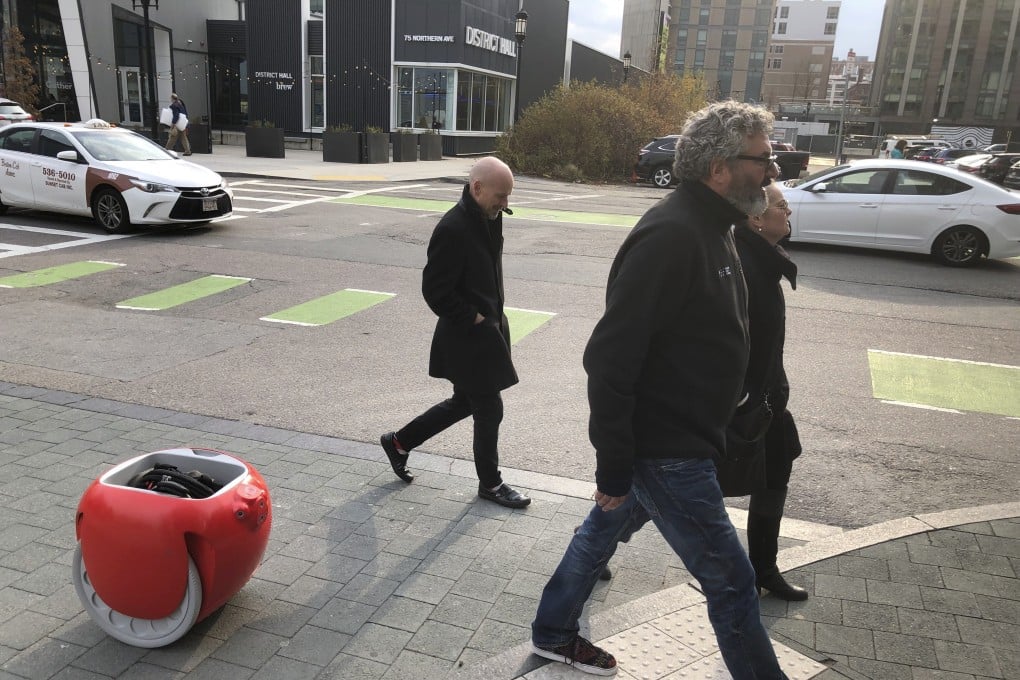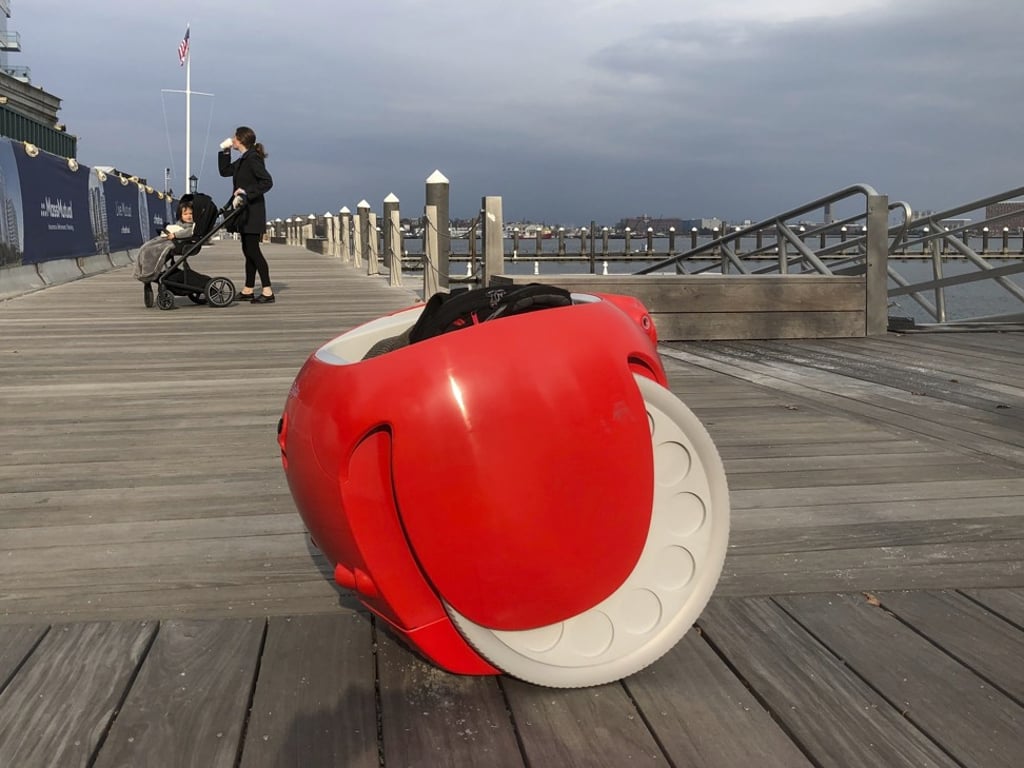Grocery-carrying robots are coming. Do we need them?
- The Gita, from Vespa scooter maker Piaggio, weighs 22.7 kilograms and costs US$3,250
- It favours paved environments that are dense enough to have stores in walking distance

The first cargo-carrying robot marketed directly to consumers is on sale this holiday season. But how many people are ready to ditch their second car to buy a two-wheeled rover that can follow them around like a dog?
Corporate giants like Amazon.com, FedEx and the Ford Motor Co have already been experimenting with sending delivery robots to doorsteps. Now Piaggio, the Italian company that makes the Vespa scooter, is offering a stylish alternative to those blandly utilitarian machines – albeit one that weighs 50 pounds (22.7 kilograms) and costs US$3,250.
It is named the Gita, pronounced jee’-tah, after the Italian word for a short, pleasurable excursion – the kind you might take to pick up some lacinato kale and gourmet cheese at the farmers market. Its creators have such trips in mind for the “hands-free carrier” that can hold produce and other objects as it follows its owner down a pavement.
“We’re trying to get you out into the world and connected to that neighbourhood you decided to move to because it was so walkable,” said Greg Lynn, chief executive of Piaggio’s tech-focused subsidiary, Piaggio Fast Forward.

Technology industry analysts are already declaring the Gita as doomed to fail unless it finds a more practical application, such as lugging tools around warehouses, hospitals or factory floors.